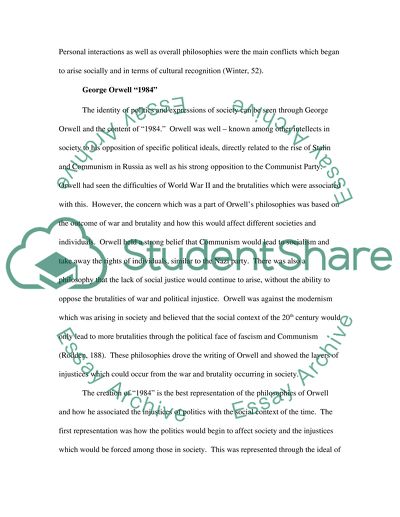Cite this document
(“The Impact of War in the Novels by George Orwell and Sylvia Plath Essay”, n.d.)
Retrieved from https://studentshare.org/literature/1576181-this-is-a-war-universe-war-all-the-time-that-is-its-nature-william-burroughs-discuss-the-impact-of-war-or-brutality-on-and-in-1984-by-george-orwell-and-ariel-by-sylvia-plath
Retrieved from https://studentshare.org/literature/1576181-this-is-a-war-universe-war-all-the-time-that-is-its-nature-william-burroughs-discuss-the-impact-of-war-or-brutality-on-and-in-1984-by-george-orwell-and-ariel-by-sylvia-plath
(The Impact of War in the Novels by George Orwell and Sylvia Plath Essay)
https://studentshare.org/literature/1576181-this-is-a-war-universe-war-all-the-time-that-is-its-nature-william-burroughs-discuss-the-impact-of-war-or-brutality-on-and-in-1984-by-george-orwell-and-ariel-by-sylvia-plath.
https://studentshare.org/literature/1576181-this-is-a-war-universe-war-all-the-time-that-is-its-nature-william-burroughs-discuss-the-impact-of-war-or-brutality-on-and-in-1984-by-george-orwell-and-ariel-by-sylvia-plath.
“The Impact of War in the Novels by George Orwell and Sylvia Plath Essay”, n.d. https://studentshare.org/literature/1576181-this-is-a-war-universe-war-all-the-time-that-is-its-nature-william-burroughs-discuss-the-impact-of-war-or-brutality-on-and-in-1984-by-george-orwell-and-ariel-by-sylvia-plath.


